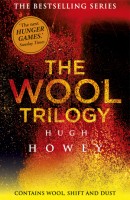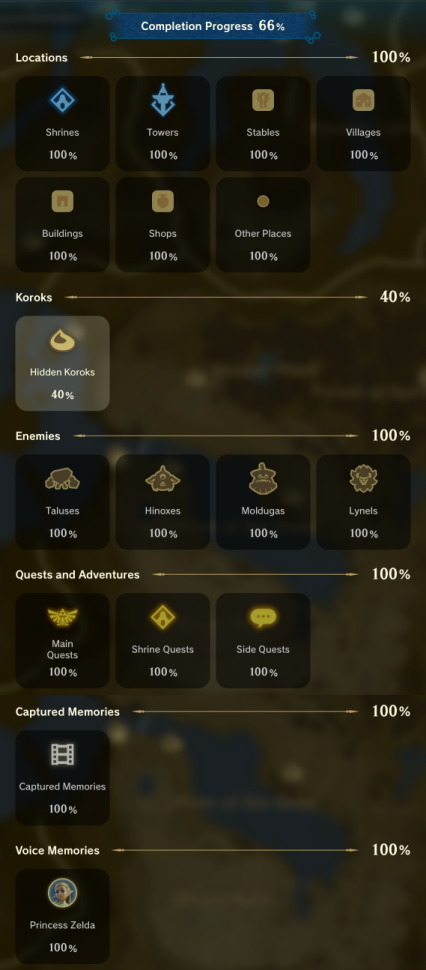Book review: Silo - The Wool Trilogy

Book: Silo - The Wool Trilogy
I did not know about this trilogy until I saw the first season of Apple TV's show, Silo, more than a year ago. After watching it, I got interested and picked up the book. I don't want to undervalue the show, as the first season is really good, but as it very often happens, the book is richer, slightly different, and I'd recommend starting with it instead of the series. I also stopped watching it midway through the second season, so I don't know if the divergences from the book become more accused, or stays mostly faithful to the source material.
With that out of the way, here comes the review itself. I really enjoyed this book. The apocalyptic, maybe sci-fi but not unsure if really so, setting; unsettling and cruel at times but not in excess (as could have very easily been the case). With well defined characters, who, for the most part, fit nicely in the story, and at times surprisingly leave it. With a narrative that dares to be different in the second book (I won't say why to avoid spoilers) to then come back with a vengeance in the final book. With sub-stories and variety, but not too much that you get lost on the main one.
If I had to mention something to improve, I have two tiny points: - A few characters feel like they are going to have more weight, and then they fade out into a very secondary role. This is one point that the TV show seemed to want to address differently (again, no spoiling). - The ending felt a bit abrupt: So much happens before, and then it ends a bit suddenly... too quickly without much detail.
In summary, a ~1300 pages great science-fiction tale, apt even for non sci-fi fans.
Tags: Books Science-Fiction
Status Update: August 2025
RPGs
Summer means different people having vacation at different times, so hard to group the full party. Hopefully around September things will get rolling again.
Videogames - Finished
Zelda: Breath Of The Wild
I got a Switch 2, so the first thing I did was another run of Zelda: BOTW. Only 40 hours, and not all the shrines finished yet (nor many of the secondary quests), but I got the "completed" star on the savegame, and now I can progress sporadically.
What I did was also pick up my old completed savegame, and left it nearer full completion:

I've only got to get a few more koroks to unlock the final extra shield slots, and farm two items to complete the last two armours I have not yet maxed.
I doubt that I'll ever get to 100% koroks, as it gets tiring after a while.
Videogames - Ongoing
Zelda: Tears Of The Kingdom
Similar to Zelda: BOTW, I'm doing a new playthrough, although this time the completed savegame is missing a lot of content, so I expect to switch to it as soon as I catch up.
The Elder Scrolls: Oblivion - Remastered
Ongoing, not many news, other than the company that did the "remaster" clearly ported everything as it is, as the same bugs from the old Game Of The Year versions are present. Thankfully, the game is so versatile that you can escape some buggy situations by checking online for the old XBox 360 GOTY tricks/solutions.
Starfield
I just purchased it, with the DLC and all. I know it's not the greatest game, but I really liked what I saw regarding immersion and lore. Maybe it reminds me of Mass Effect in the aesthetics, but whatever the reason is, I plan to toggle between Oblivion, Zelda and this title as my main long term pseudo-RPGs for a while.
My Oblivion Remastered Recommended Mods
Introduction
This is a (small) list of the plugins/mods and other tweaks for The Elder Scrolls IV: Oblivion Remastered that I use. You can find many more, but I mostly want small tweaks and re-balances, so I haven't even looked at what else appeared since I began playing.
Installation Instructions
For standard mods, download the corresponding files and put them in the Content/Dev/ObvData/Data subfolder of where you installed the game. Then open the file Plugins.txt (in the same folder), and add the names of the new plugins to the list (often to the bottom).
Custom mods usually come with their step-by-step instructions.
My Mod Recommendations
- Ascension Remastered - Vanilla-Plus Loot and Balance: Fixes leveling and loot. I use the main
Ascension Remasteredplugin, andVanilla Spell Effectiveness. - Better HUD: Smaller and better organized HUD elements. I use the
Default Size (16x9)version. - NPCs Catch Fire: Adds a bit of realism.
- Permanent Doomstones: Makes Doomstones more useful. I use the
vanillaversion. - No Pickpocket Chance Cap: Caps the ability at 100%, instead of to 85%.
- Richer Vendors: Makes vendors have way more gold, to purchase your items. This one becomes more useful as you progress in the game and find better items. I use the standard version.
- Shady Sam Buys Stolen Goods and More: Useful if you play a thief, but beware that selling items to Sam does not count towards your thieving rank. It is still good to simplify getting rid of stolen items. Move to the bottom of
Plugins.txtif you enable the Richer Vendors mod too. - Skip Intro: No explanations required. I use the basic "Skip Intro Screens" version.
- Universal Achievement Unblocker: If you get stuck because of a bugged quest (e.g. Go Fish), and you need to restort to using console commands to fix it, this mod will re-enable achievements on the "tainted" savegame file.
- Weightless Alchemy and Misc. Items: I don't like having to travel home constantly just to drop resources and other miscellaneous items, and this mod solves that. Important stuff like armour and weapons still has weight.
Console Tweaks
Note: you need the Universal Achievement Unblocker plugin (listed above) if you want to make your savegame normal again after using any console command.
- If you need to make an item yours (e.g. you escaped jail and stole your own items from the evidence chest):
- With the console already opened, target the stole item (click with the mouse an element, and having the inventory closed)
- Type in
setownership - The item it will lose its stolen tag/become your property
- Be careful when you target, as you can for example also make npcs "followers"
- If you need gold because you accidentally sold your amazing magical item:
player.additem 0000000F 500
General Game Stability Fixes
Oblivion was a buggy game. Oblivion remastered inherited all the old bugs, plus by swapping the 3D engine to Unreal Engine 5, seems to have added a new generation of bugs. I almost gave up twice playing the game due to issues, so here are my recommendations to (at least for now) remove the annoying "game crash on load" or "game freeze on travel" bugs.
- Disable autosaves in the gameplay settings: as you advance, the game will start crashing pseudo-randomly on loading new areas or fast travelling. It began to happen to me after 30h.
- Disable hardware Lumen effects in the graphics settings: Nobody knows exactly why, but even with autosaving disabled, at around 40h I'd get frequent crashes just changing the area, and since I disabled Lumen, zero.
- Disable non-native game mods: Mods like Universal Achievement Unblocker rely on special DLL files, which can make the game crash sometimes. I noticed more frequent crashes when having this mod enabled, so I removed it (and if needed, I'll use it once and re-disable).
Status Update: May 2025
RPGs
Old-School Essentials
We continue with the first campaign. As all the party members recently had a spike of intense work (we're all in the same team), we lowered the frequency of sessions, but things should be back to normal now.
Videogames - Finished
None since the last update 😬. Although I played a lot of GTA-like titles: GTA 3, GTA: Vice City, GTA: San Andreas, Mafia and Mafia 2.
Videogames - Ongoing
The Elder Scrolls: Oblivion - Remastered
Oh boy, so many memories from the past, and yet I'm enjoying it as if it was my first playthrough.
Funnily, it contains the same issues and bugs as the original, but people already came up with updated mods and fixes for everything. Here you can find the list of mods that I use.
Diablo 4
In the end, I bought the expansion heavily discounted, and I admit that it adds a decent amount of end-game content. The story advances just a few steps, but it is pleasing to watch (the 3D engine is so good and detailed) and play once or twice.
I'm now playing from time to time some of the seasons, as they at time have decent story lines (e.g. as of May, Belial has returned). Creating a new seasonal character made me try the classes I had pending, so not bad. I'm currently levelling up a werewolf-druid that goes around with another 3 companion werewolves, and it feels more of a tank than the barbarian 🤔.
Dwarf Fortress, KeeperRL, Ancient Domains of Mystery
Grouped these three, as they are in the same status: Not fully postponed, but also not actively playing them.
Earthbound
A friend recommended me to play Earthbound on the SNES "if I like Final Fantasy like titles", so I picked it up and I'm slowly starting. Such a weird beginning, but it is best to not spoil anything.
Videogames - Postponed / Discarded
Zelda BOTW and TOTK
I'm almost 100% decided to get a Nintendo Switch 2, which means I'll replay both open-world Zeldas from the beginning. So, I'll wait to have the console.
Zelda: Echoes of Wisdom
The whole echoes idea is cool, but I got tired mid-way of the general gameplay. Companions have poor artificial intelligence, quite a few segments become repetitive, and while I applaud the initiative of not having Link as the main character, I got the feeling that this title is too experimental. Plus all those objects and entities you can spawn, and most of the times you'll just use over and over a tiny selection.
The Elder Scrolls: Morrowind
I bought the game and prepared my guide about how to upgrade it for modern times, but at the same time I also purchased The Elder Scrolls: Oblivion Remastered, so I've decided to play Oblivion first.
Miscellaneous
I'm doing some crafts, like this wooden flower:

Tags: Diablo Elder Scrolls: Morrowind Elder Scrolls: Oblivion Videogames Zelda
Playing The Elder Scrolls Morrowind with fixes and graphical updates
The Elder Scrolls III: Morrowind was my first real interaction with the saga. I saw Daggerfall but never played it. And in the case of Morrowind, I don't even remember if I finished even the lengthy tutorial, as you couldn't save until after completing it.
Anyway, advancing to the present (April 2025), I picked the game on a sale, and decided to see if I could improve its visuals and fix some bugs and annoyances. I was successful, so I want to document here what works for me (also for future reference).
- Morrowind Code Patch: Lots of fixes and QoL changes.
- Morrowind Graphics Extender XE (MGE XE): Improves almost everything, but specially the water and illumination will look amazing.
- Morrowind Enhanced Textures: Upscaled textures, but respecting the originals. Combined with MGE XE, looks as good as it can!
- How to fix the glitchy music bug: I faced this issue. It has an easy solution, but you will be surprised about how to solve it 😅
- How to save even at the start of the game: Open the console (
~key), typeset CharGenState to -1and pressENTER. This marks you as having finished creating the character, and finally shows theSaveoption in the main menu. - Easier thievery: Open the console (
~key), typetfhand pressENTER. It displays ownership information of all items, so you can know if what you are going to pick is owned or not.
There are many cool mods, and even instaling the Code Patch alone will give you the option of activating some tiny quality of life tweaks. I like to keep the experience as near the "vanilla" one as possible, so for now I'm sticking with mostly fixes and graphical updates.
As an extra for the future, two insanely big mods are currently being developed as of 2025 (and they even share some resources!):
They are still halfway there, but being so vast, it seems that you can already explore and experience a lot of content. Maybe for the future, when I finish the main game and original expansions...